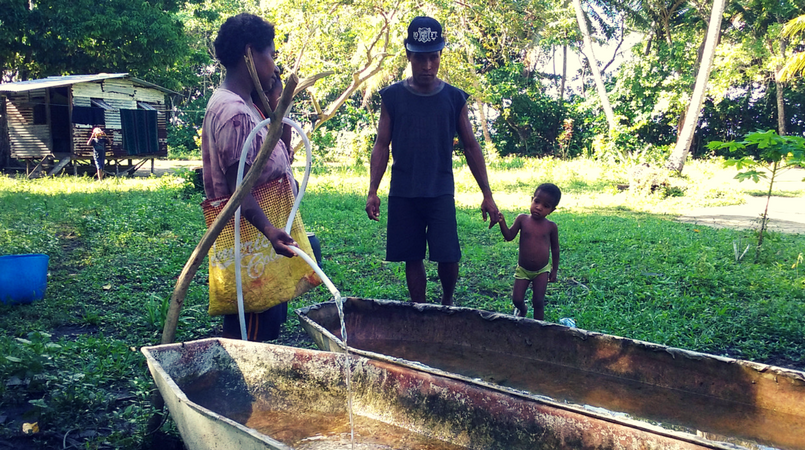
A water and sanitation survey for the WASH policy, which was launched last year, will be carried out over the next three to four months to identify how many communities have access to safe water.
National Planning Minister Richard Maru stressed the importance of WASH baseline data recently during the project closing of the seawater desalination project in Manus.
He called on the Government and development partners to fund an urgent nationwide survey on water and sanitation.
Papua New Guinea’s first WASH policy highlights that more than 75 percent of Papua New Guinea’s rural population and 85 percent of the country’s urban population are expected to have better access to improved water and sanitation by 2030.
But for plans to be made, the government needs to know how many communities have access to safe water.
“One of our biggest problems as a country is that the government does not know how many communities have safe water and how many do not,” Minister Maru said.
“We need to identity how many communities have safe water and how many does not have safe water so that we can then develop a plan, in partnership with donor partners like European Union, JICA, to develop a plan and others to roll out a plan for 10 -15 years.
“We are going to make sure that every village has safe water throughout out Papua New Guinea.”
According to a 2017 Joint Monitoring Programme Baseline Report by WHO and UNICEF, only 37 percent of Papua New Guineans use any basic water services.
These include, at most, a 30-minute trip to get water from sources such as piped water, improved well or borehole and rainwater tank.
Sixty percent of Papua New Guineans lack access to improved water sources and only 19 percent of the population use a basic toilet.
“Water, sanitation and hygiene are critical key contributors to improved quality of life and improved nutrition and education outcomes. No development sector can make meaningful headway without prioritising WASH within the Government development planning cycle,” Maru added.
He said it was crucial for the Government to translate the WASH policy to real-time implementation in order to achieve the Sustainable Development Goal number 6 on water and sanitation.
(A young family on Bipi Island, Manus, using desalinated water)
